Responsible Travel Tips for Meaningful Experiences on the Road.
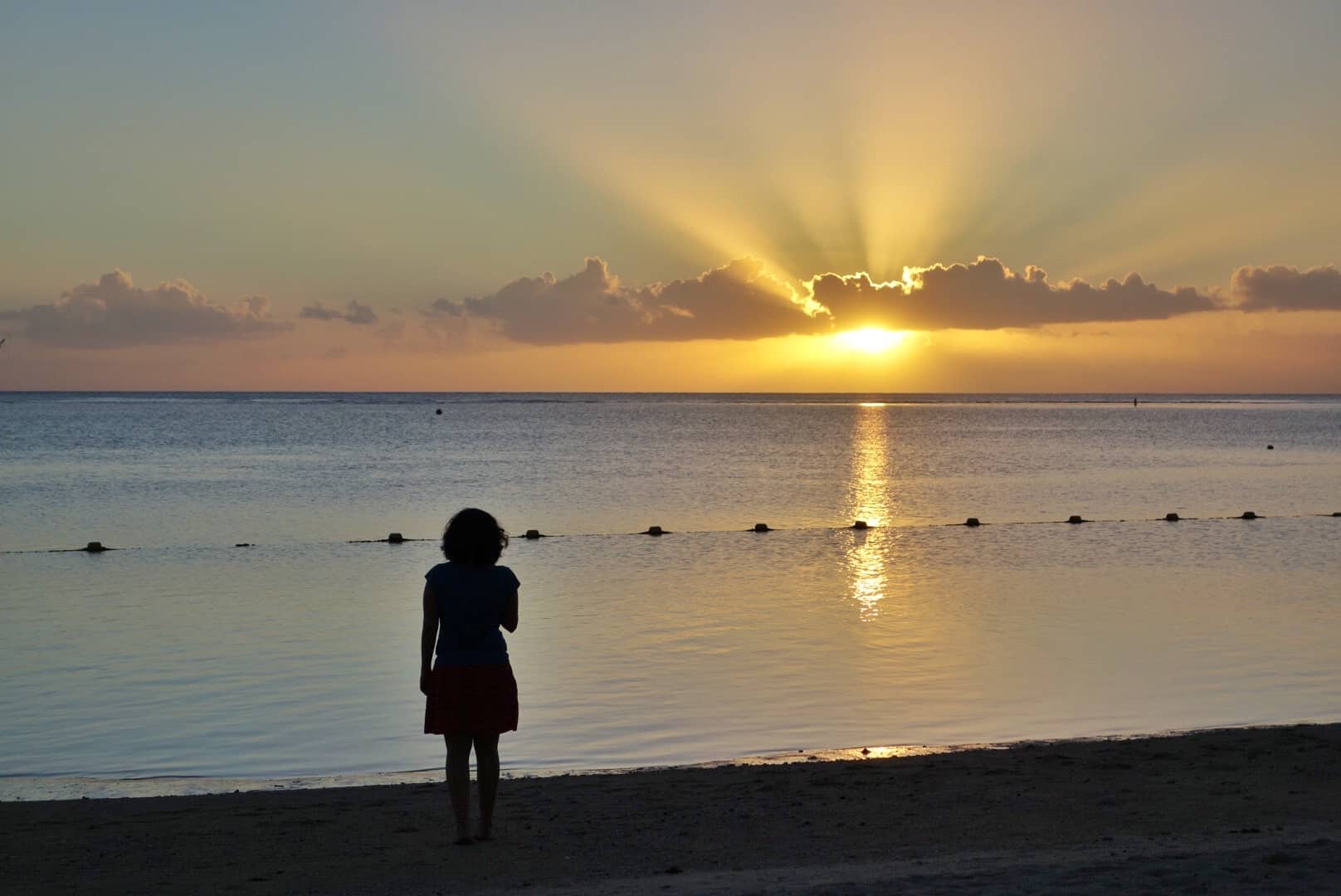
Much has changed since I set out on my first solo trip, began my journey as a travel blogger and began to pay attention to responsible travel tips – way back in 2011. Travelling has become more accessible, flights are cheaper than ever before and Instagram has changed the way we view the world.
In the age of overtourism and in the midst of a climate crisis, becoming a responsible traveller is not just a pressing need to protect the incredible natural and cultural heritage of our world. It is also the only way we can still find authentic experiences, engage meaningfully with locals and savor the pristine beauty (or what remains of it) on our planet.
Also read: The Ultimate Guide to Sustainable Fashion in India
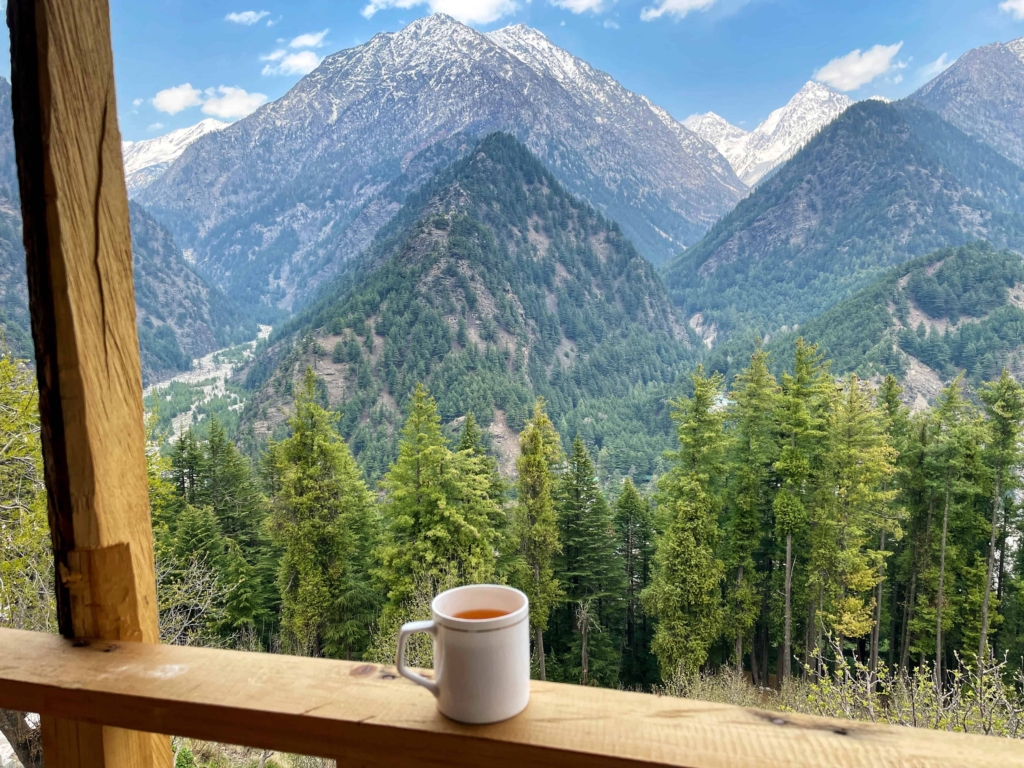
Responsible Travel Tips, Definition and Examples
Before jumping into my responsible travel tips based on a decade of meaningful globetrotting, it’s important to understand what it means to be a responsible tourist, no matter where in the world we are.
- Responsible Travel Tips, Definition and Examples
- How to be a responsible traveller: 15 Practical Tips
- 1. Expand your definition of travel
- 2. Pick countries under the radar or travel in off-season
- 3. Do a land journey – and when you can’t, fly responsibly
- 4. Stay in eco-friendly, local-run accommodations
- 5. Respect the local culture
- 6. Walk, cycle or take public transport
- 7. Slow down and spend more time in one place
- 8. Carry your own water bottle instead of buying / accepting plastic bottled water
- 9. Say no to other single-use plastic
- 10. Look for zero-waste stores, local markets and small-scale entrepreneurs
- 11. Say no to zoos and other unethical animal attractions
- 12. Travel with responsible travel companies or social enterprises that support the community
- 13. Ask for permission when photographing people
- 14. Eat local and plant-based
- 15. Be mindful of what you post on social media
- What responsible travel tips do you (aspire to) follow on your travels?
What exactly is responsible travel?
Simply put, it is a commitment to travel choices (getting to a destination, where to stay, what to eat, what to do) that are mindful of the environment, inclusive of local communities and soothing for our restless soul. It is often used interchangeably with “sustainable tourism”.
Is there an official definition of responsible tourism?
While there are many ways to define responsible tourism, the one that I personally believe in was adopted at the Cape Town Responsible Tourism Declaration:
“Responsible tourism is about making better places for people to live in and better places for people to visit.”
According to the UNWTO:
“Responsible tourism takes full account of its current and future economic, social and environmental impacts, while addressing the needs of visitors, the industry, the environment and host communities.”
Example of responsible tourism
While there are many environmentally and socially responsible travel initiatives out there, one of my favorites is the Black Sheep Inn, set in the remote outpost of Chugchilan at over 10,000 feet in the Ecuadorean Andes. The eco-lodge literally brought tourism, waste management and environmental education to the area, and is well on its way to self-sufficiency in energy, water and food production – thereby scoring admirably on the 3 pillars of responsible tourism (social, environmental and economic).
Also read: Sustainable Living Ideas to Embrace as we Emerge Into a New “Normal”

How to be a responsible traveller: 15 Practical Tips
Based on the past eight years of travelling around the world, I’ve slowly been able to unravel the real life meaning of responsible travel. I’m still learning, and below are my current top travel tips to create a positive environmental, social and economic impact on the destinations we visit:
1. Expand your definition of travel
We need to think beyond sightseeing, and think in terms of art, music, food, history, dance, architecture, environment or whatever else truly holds meaning for us.
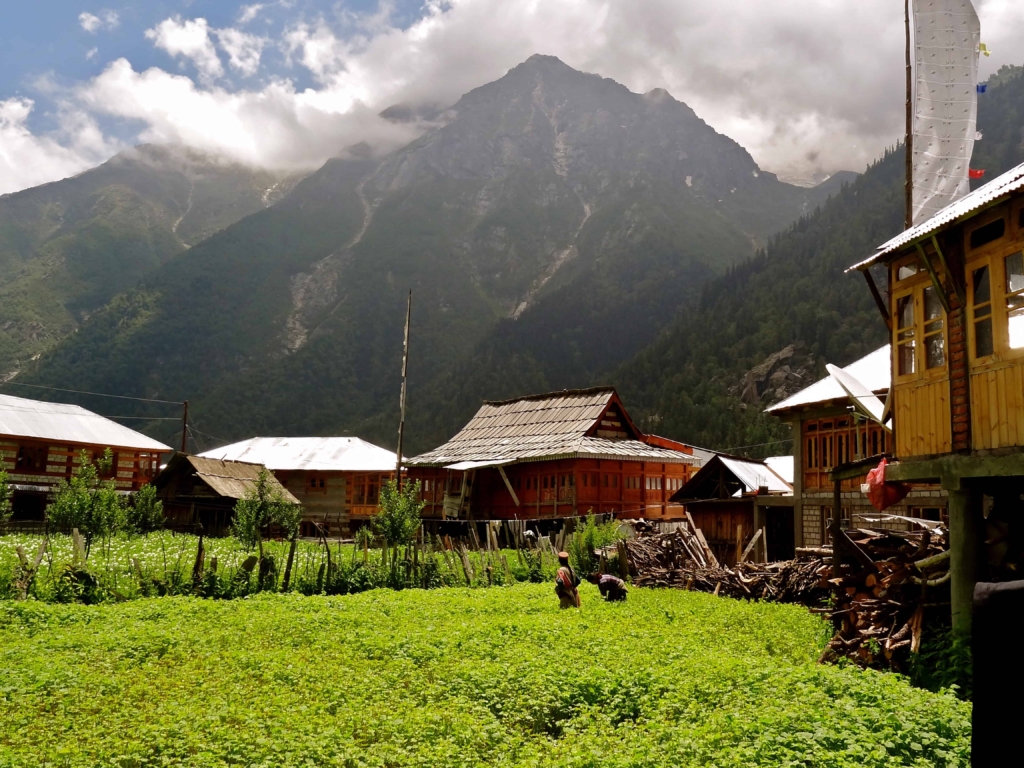
It’s hard to go back in time and trace how the popular conception of travel – in which we pick a destination, draw up an itinerary and spend our day (typically taking photos) at the must-do spots – came about. Perhaps it was propelled by a mix of travel agents, misguided ‘best tips’ for travelling lists out there and the rise of guidebooks like Lonely Planet. Or perhaps it is human nature to try to maximize the money spent on taking a trip away from home.
Whatever the reason, this narrative of travel needs to evolve. We need to expand it to encapsulate experiences that stimulate us – and move away from the peer pressure of seeing or doing something just because it’s marketed as THE thing to do. We need to think beyond sightseeing, and think in terms of art, music, food, history, dance, architecture, environment or whatever else truly holds meaning for us.
That way, we can allow places to heal from the pressure of mass tourism while actually enjoying our own handcrafted journey – just the way travelling was meant to be.
Also read: Responsible Travel in India: Incredible, Offbeat, Homegrown Companies Changing the Way we Experience India
2. Pick countries under the radar or travel in off-season
Prioritize countries or regions where locals are still genuinely curious to meet travellers.
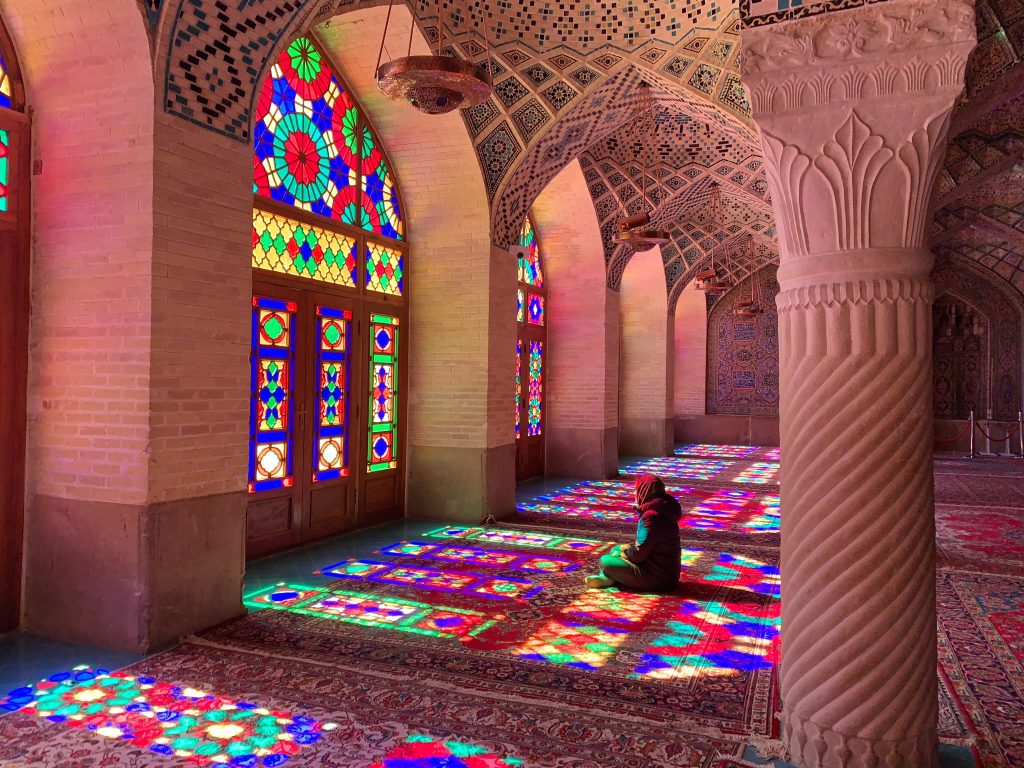
On my recent trip to Tajikistan, I couldn’t wrap my head around the fact that here was a country with some of the most dramatic landscapes on earth – turquoise glacial lakes, rugged peaks, stark vistas – yet visited by so few people. Many would even struggle to name its capital city. On the other side of the world lie the much-romanticized Swiss Alps – now suffering from the ecological damage of having too many visitors!
One way to pursue socially and environmentally responsible travel, and fix this imbalance, is to prioritize countries or regions where locals are still genuinely curious to meet travellers, and can still reap the positive benefits of tourism.
Beautiful though the Swiss Alps are, they don’t compare to my memories of the abundant warmth of people in Tajikistan. While Switzerland is reaching tourism saturation, half of Tajikistan’s population works in Russia and could use some tourism jobs and dollars to draw back its people.
If it’s still the conventional bucket list destinations you’re after though, travel in off-season instead. You can still beat the crowds and support local businesses at Europe’s many Christmas Markets and at snowed-in Indian hill stations that are overrun by tourists in the summer.
Also read: Unusual Solo Travel Destinations to Feed Your Adventurous Spirit
3. Do a land journey – and when you can’t, fly responsibly
Compared to trains and buses, the carbon footprint of flying and even driving is significantly higher.
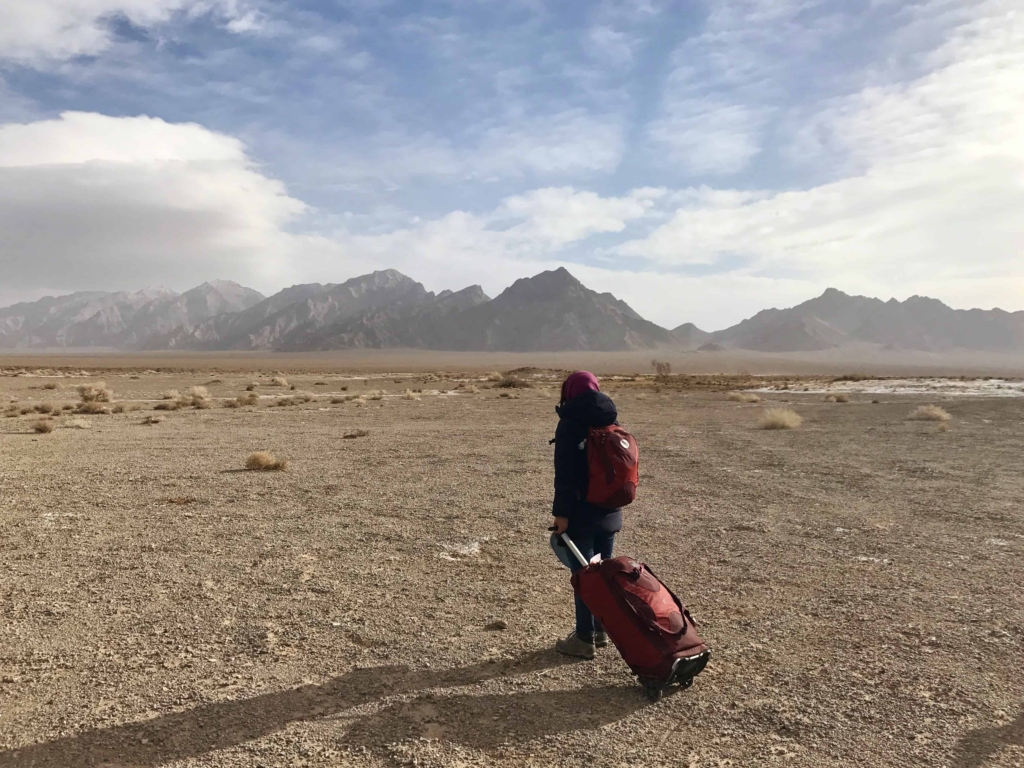
I began 2019 with a pledge to cut down flying as much as possible. That led me to embark on some epic slow land journeys through the year: Thailand to India via Myanmar, the Persian Gulf to Armenia via the south of Iran, Uzbekistan to Tajikistan and I’ll hopefully end the year overlanding in Africa!
In the process, I’ve realised that a land journey is infinitely more adventurous than hopping on a plane – and can be a “destination” unto itself. The challenge of visas and land borders aside, it hearkens back to the days of famous travellers like Ibn Batutta and Hiuen Tsang.
When land transport isn’t a viable option, I’ve learnt that our flying choices can make a difference too.
Useful tips for travelling by air
- Airlines like KLM and ANA currently rank the highest in terms of their sustainability initiatives.
- Flying a newer aircraft like the A350 or Boeing 787-10 is more efficient.
- Flying non-stop to a destination (as opposed to taking a layover) is more eco-friendly.
- Packing lighter can ensure less weight on board, and hence less emissions.
Also read: Is it Possible to Fly Responsibly? What I Learnt on my KLM Flight
4. Stay in eco-friendly, local-run accommodations
Staying at such accommodations can enable genuine socio-cultural exchanges beyond the tourist track.
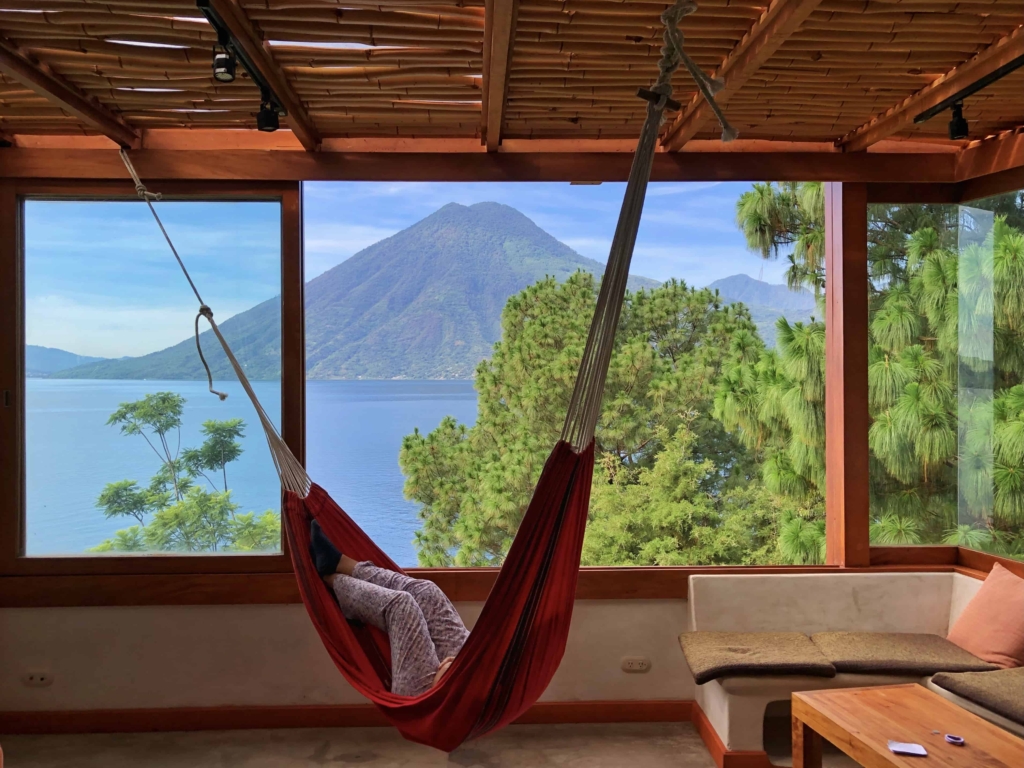
My fondest travel memories are not from posh hotels but from small homestays, guesthouses and lodges that creatively try to reduce their environmental footprint.
I’m thinking of Grand Oak Manor in Binsar Wildlife Sanctuary, powered entirely by wind and solar energy. The Secret Garden in Goa, where vegan-friendly breakfasts are made primarily with home-grown ingredients and all waste is composted / recycled. And the community-run sustainable tourism homestays that empower local women in the stunning village of Sarmoli in the Uttarakhand Himalayas.
Over the course of my travels, I’ve realised that staying at such accommodations has enabled me to experience the local culture beyond the tourist track, immerse myself in nature, interact with locals doing meaningful work in the area and gain an understanding of the unique circumstances of the people I’m visiting. And isn’t that what travel is all about?
Also read: Responsible Travel Asia: 10 Incredible Eco Lodges Around the World: Indulge Yourself and Spare the Planet
5. Respect the local culture
It’s high time we drop our “demanding” mentality. Just because we’ve paid for a holiday doesn’t mean we can make unfair demands, disrespect local traditions or behave obnoxiously.
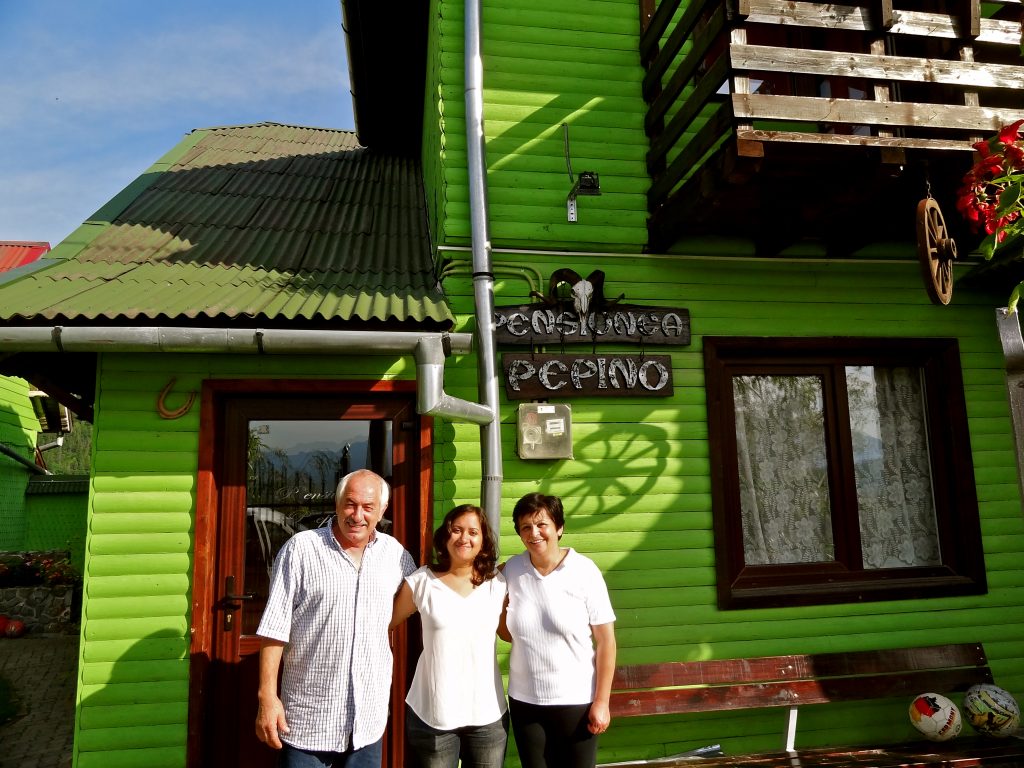
To tell you the harsh truth, being an Indian traveller comes with a heavy burden. I’ve witnessed my fellow countrymen make aggressive demands at homestays, play loud music while hiking amid pristine landscapes, and show a lack of respect towards other cultures. A resort in Bali recently busted an Indian family trying to steal pretty much everything from a villa they stayed in, and Bhutan arrested an Indian biker for climbing atop a spiritually revered chortan.
To deal with this burden, we must try to go the extra mile to be more respectful travellers. Learn some words in the local language, respect the rules of another place, offer to help with chores while staying in a homestay, leave an Airbnb rental like we found it and approach people as friends, not as workers offering a service.
If travelling is to open our minds, we need to leave our prejudices, mind-blocks and entitlement at home.
Also read: Stuck in a Vicious Cycle, or Is This How Indians Like to Travel
6. Walk, cycle or take public transport
Tthe quickest way to get familiar with a new country is to figure out its public transport.
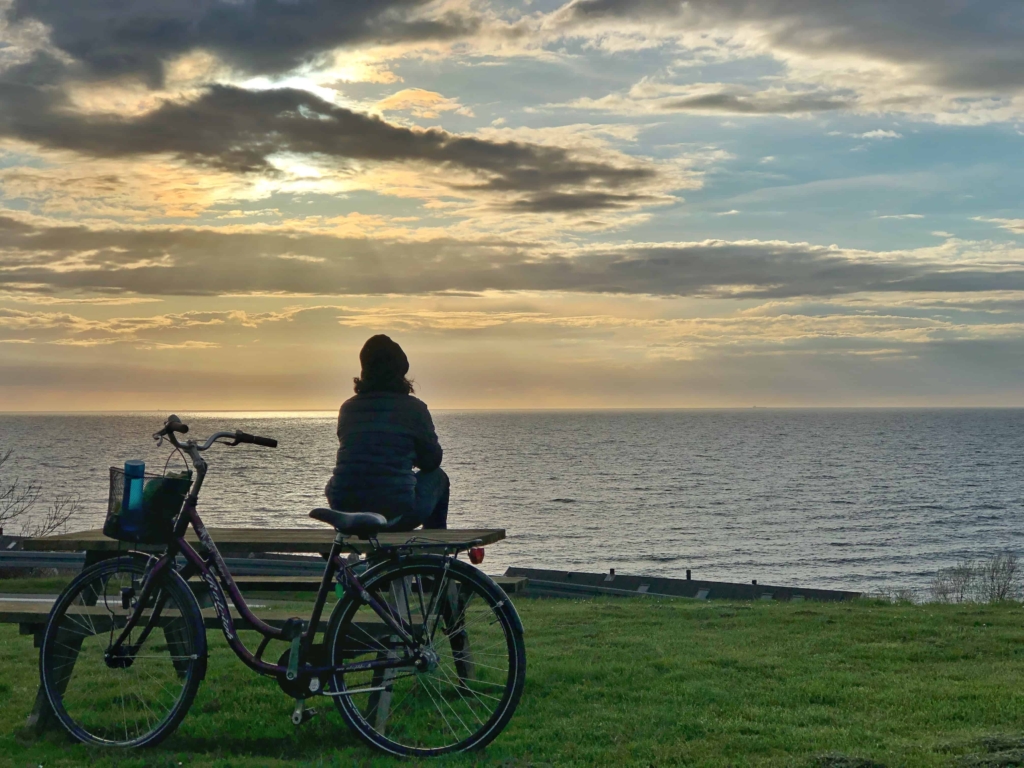
It’s tempting to hop into a taxi or Uber, but if time’s on your side, choose to use your feet to explore a place instead.
Responsible tourism tips aside, I’ve stumbled upon some real gems in cities like Tbilisi and Ljubljana while exploring local neighborhoods on foot, and there’s no joy like discovering Copenhagen on two wheels.
And after all these years on the road, I think the quickest way to get familiar with a new country is to figure out its public transport. In Tashkent (Uzbekistan), the underground metro is a work of art, an experience unto itself. In European cities, local trains and buses are the cheapest and most efficient way to get around.
Walking, cycling or getting around by public transport is not just a more immersive way of exploring a new place, but it is also far more eco-friendly than renting a car or using taxis.
Also read: An Open Letter to Indian Parents: Let Your “Kids” Travel
7. Slow down and spend more time in one place
Rather than skimming the surface of a hundred places for some Instagram-worthy photos, get to know one place deeper.
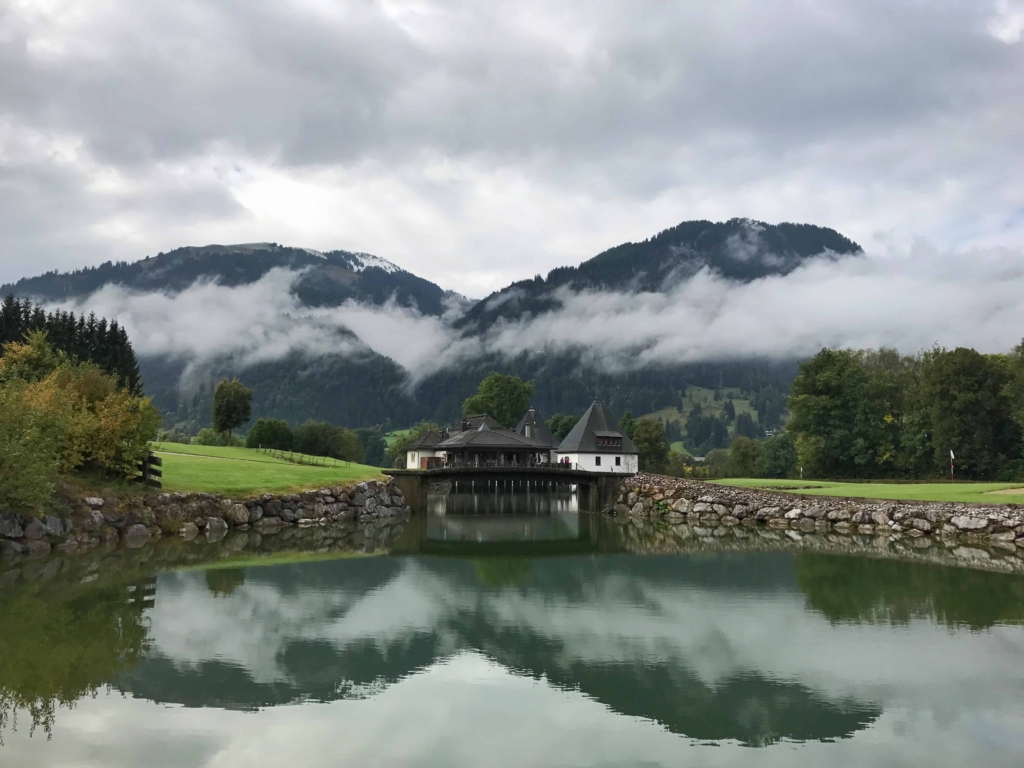
Back in the day, when flying was seriously expensive, people travelled to faraway destinations with large chunks of time, slowly making their way from one place to another.
These days, flights are cheap and time a rarity, so many of us end up criss-crossing huge countries or entire regions in just a few days. I cringe when people tell me they’ve “done” Latin America or Southeast Asia or India. Sorry to burst that bubble, but I don’t think anyone can “do” those places even in an entire lifetime.
Over time, I’ve learnt to fight my FOMO (fear of missing out) – and accept that there’s only so much I can experience in this life. I’d rather spend a chunk of time in one place (currently, South Africa), trying to really imbibe everything it has to offer.
Going slow also means we have the chance to get off the tourist track, understand the local culture better, connect with inspiring local enterprises, scout eco responsible brands, meaningfully volunteer along the way and pick up a skill or two if so inclined.
Also read: Moonlit Cycling, Poetry and Other Meaningful Things to do in Fort Kochi
8. Carry your own water bottle instead of buying / accepting plastic bottled water
The complimentary plastic bottled water offered by hotels, trains, buses and flights is not really free if you account for the environmental cost.
I’ve gone nearly seven years without buying plastic bottled water on my travels – and I can assure you that all it takes is some determination!
I always carry my reusable steel bottle and refill it with filtered drinking water at homestays, Airbnbs, guesthouses, hotels, restaurants, cafes and bars. When I’m unable to access filtered water, I use my LifeStraw filter (and previously used a Steripen) to filter it myself. I also refuse complimentary plastic bottled water offered by hotels, trains, buses and flights – they’re not really free if you account for the environmental cost.
Upto 91% of plastic bottles around the world do not get recycled – and the ones that do are primarily downcycled. Which means that plastic is going to be on earth for a very long time, and ultimately enter our bodies through groundwater, soil or seafood.
With the availability of safe alternatives in most places, there’s really no excuse to ignore the single-use plastic crisis and continue consuming water from plastic bottles.
Also read: Responsible Travel Cuba: What I Learnt Volunteering on a Remote Island in Cuba
9. Say no to other single-use plastic
The important thing is to refuse, reduce and reuse waste in the first place.

If you’ve been following my Instagram Stories, you know that I’m trying to go entirely zero-waste this November. I’ve already found a community garden in Cape Town to compost my wet waste and a neighborhood recycling unit for dry waste.
Ethical travel tips to reduce plastic
- Replace plastic bags, straws, toothbrush and toiletries bottles with a cloth bag, bamboo straw, bamboo toothbrush, steel container and soap, shampoo, conditioner bars.
- Swap menstrual pads for a menstrual cup.
- Carry a steel container for leftovers and takeaways.
- Order homemade, packaging-free energy bars and snacks from homepreneurs or make your own.
- Collect and carry back any non-biodegradable waste from rural areas.
Why do we need to reduce our plastic footprint? Because it’s choking our oceans, killing marine animals, and contaminating our soil and groundwater. It’s literally the least we can do to protect the beauty of the places we travel to experience!
Also read: 5 Simple Steps to Reduce Single Use Plastic – On Our Travels and in Everyday Life
10. Look for zero-waste stores, local markets and small-scale entrepreneurs
Support local farmers, artisans and entrepreneurs who care about fair wages and have a considerably lower environmental footprint.
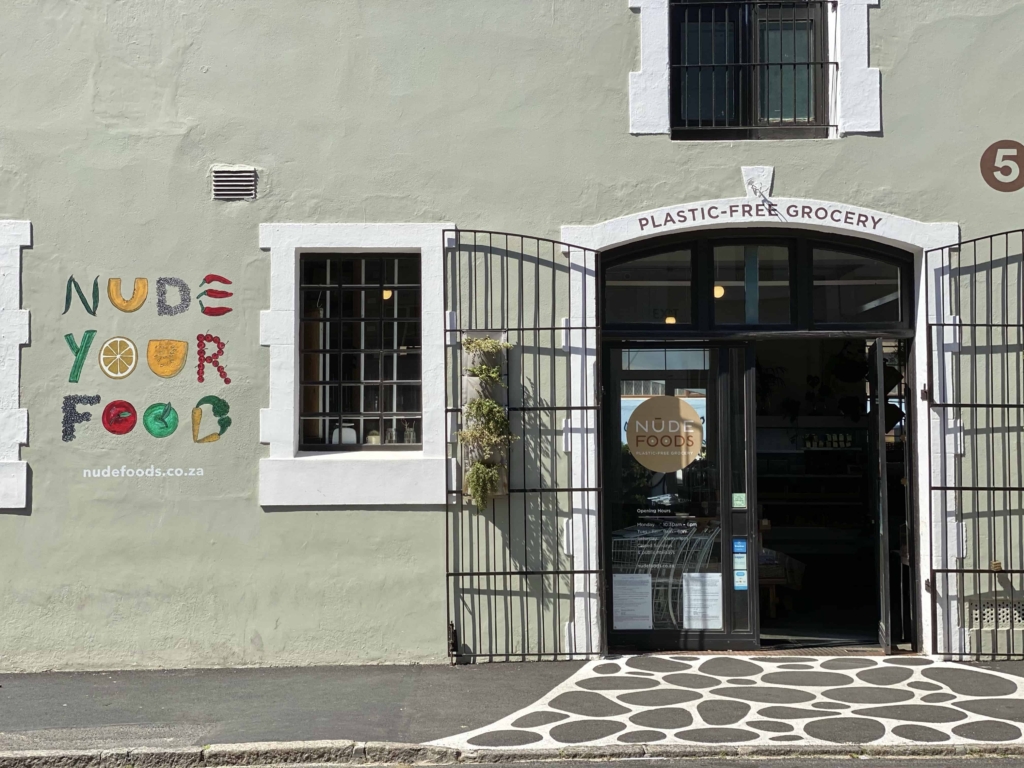
My attempt to seek local encounters while also trying to be environmentally conscious has led me to some amazing connections around the world.
I’ve found some incredible local products, thanks to zero waste stores in Yerevan (Armenia), Cape Town (South Africa) and Goa. The local bazaars of Iran and Central Asia are a treasure trove of nuts, dates, saffron and eclectic conversations. Farmers markets in Dehradun, Mumbai, Bhutan and Thailand have led me to some of the world’s best mangoes, chillies, kidney beans and mushrooms!
Food aside, shopping for souvenirs, handicrafts and other local treasures directly from small-scale entrepreneurs is a great way to ensure that the money you spend helps support local farmers and artisans, instead of filling the coffers of exploitative middlemen who often don’t pay fair wages.
Also read: How Farmers in Haryana are Using Technology in the Face of Climate Change
11. Say no to zoos and other unethical animal attractions
The animals are severely depressed due to being confined in unnatural spaces, kept away from their community and stripped of their freedom.
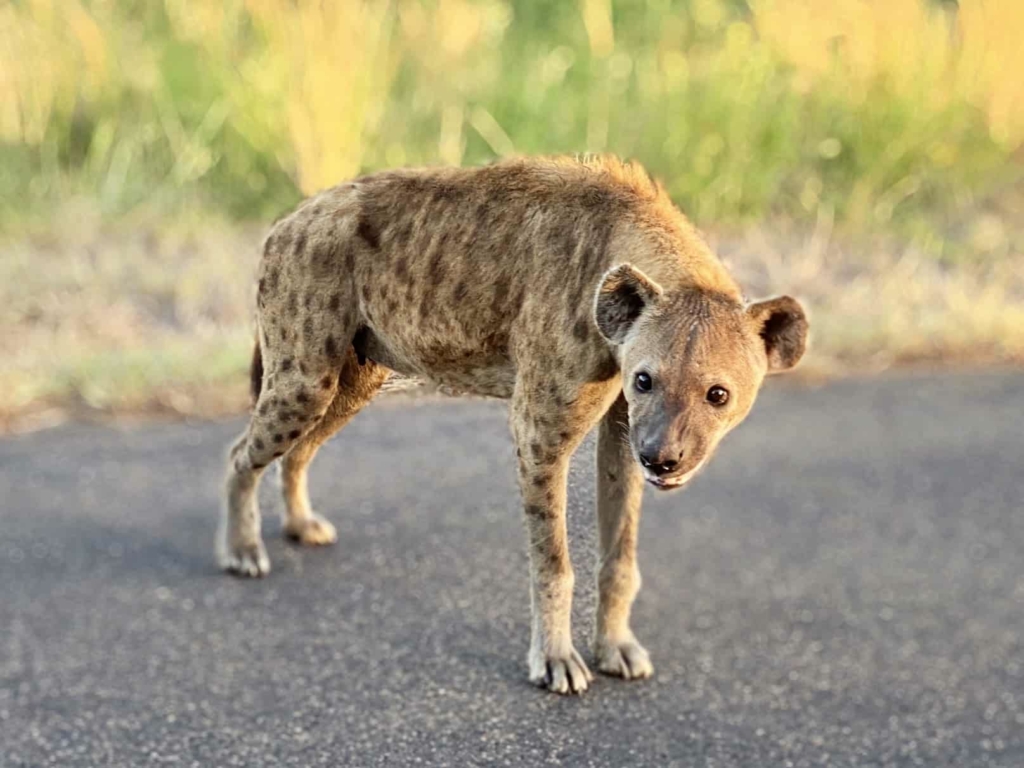
I remember being taken to zoos and a dolphin-petting attraction in Singapore as a kid – and I sorely wish I had known better.
It breaks my heart that we’re in 2019 and smack in the middle of a conscious tourism era, but attractions like zoos, aquariums, animal riding and animal selfies are still legal. And that people still visit them as a means of entertainment.
The harsh truth is that zoos and aquariums imprison animals that belong in the wild, away from their natural habitat. Animal riding is known to severely damage the spine and spirit of elephants, horses, ostriches, camels, donkeys and other creatures not meant to carry human loads. And animal selfie places (like Tiger Kingdom in Chiang Mai) drug animals like tigers so tourists can get up-close and take photos.
Some people argue that certain zoos keep animals in larger spaces and are involved in conservation, but who are we kidding? Manmade spaces are no replacement for their natural ecosystem, and the conservation of one species doesn’t justify the imprisonment of hundreds of others.
Instead, we can choose to watch documentaries about animals in the wild, go on a safari in a wildlife reserve or spot birds (free like they are meant to be) on a bird-watching trip. Remember to follow responsible travel tips recommended for the wildlife zones you visit.
Animal attractions and responsible travel report on Nat Geo: Suffering Unseen: The Dark Truth Behind Wildlife Tourism
12. Travel with responsible travel companies or social enterprises that support the community
It can not only deepen our understanding of the world, but also help us make real human connections.
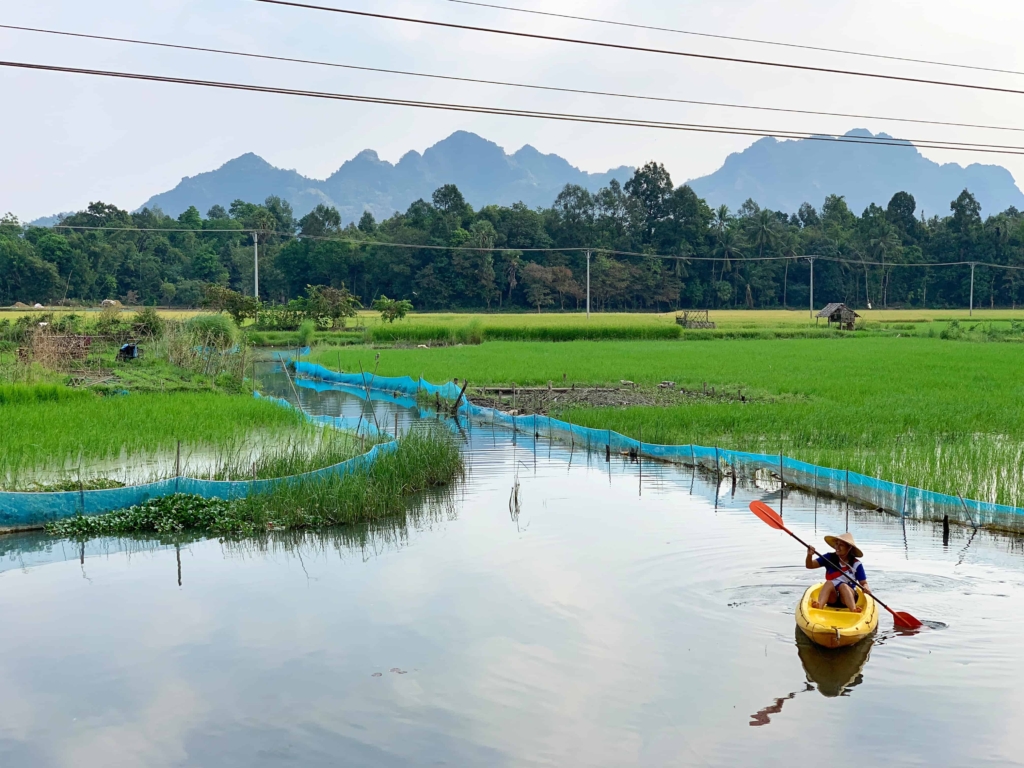
So much of how we experience a place depends on who we experience it with.
While I prefer to travel independently and at my own pace, I often hike, take an experience, support a project or volunteer with a responsible travel agency wherever I am.
Examples of responsible travel tours around the world
- Responsible travel Kerala: I met some rare artisans inspired by the River Nila while travelling with The Blue Yonder.
- Responsible travel Uzbekistan: I ended up staying with an Uzbek family in a remote mountain village – organized by a Nuratau-based company.
- Responsible travel South Africa: I spent time at some uplifting community-based social enterprises in a township near Cape Town, on a trip organised by Uthando.
Exploring a place with someone who knows it inside out and cares enough to give back, can not only deepen our understanding of the world, but also help us make real human connections, irrespective of our differences. It’s the only way to ensure that the money we spend actually benefits the local community – and shouldn’t that be our prime responsibility as travellers?
Also read: Challenging Patriarchy in India: The Role of Gender in Responsible Tourism
13. Ask for permission when photographing people
The goal is not to score a bunch of “exotic” content for Instagram, but to bring out real, human stories from faraway places.
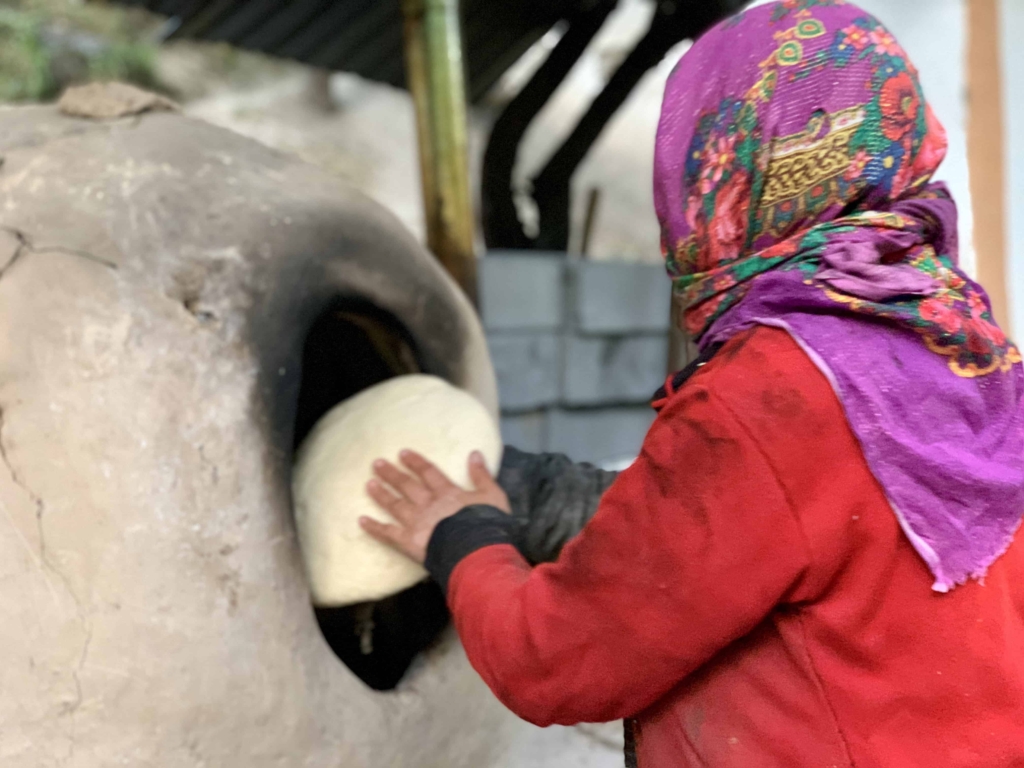
I learnt early on in my travels that the kind of travel photography we often see on social media (and sometimes in magazines) is ethically debatable.
Having travelled numerous times with photographers, I know that many don’t bother seeking permission from their subjects. Imagine if someone walked up to you, in your place of work or relaxation, clicked a bunch of close-up photos of your face without permission and walked away without saying a word. That happens all the time – and it is the most disrespectful thing we can do as travellers.
On the other hand, photographers whose work I really admire are those who take the time to build a genuine connection with a community before using their camera. Their goal is not to score a bunch of “exotic” content for Instagram, but to bring out real, human stories from faraway places.
Even if we don’t have the time or language to connect with the people we want to photograph, the least we can do is ask for permission. I’m often surprised by how many people say they don’t want to be photographed – and it’s only fair to respect their wishes!
Also read: Why Long Term Travel is More Like Real Life and Less Like Instagram
14. Eat local and plant-based
“So you’ll refuse the plastic straw to save marine life, but kill a fish to eat it anyway?”
~ meme
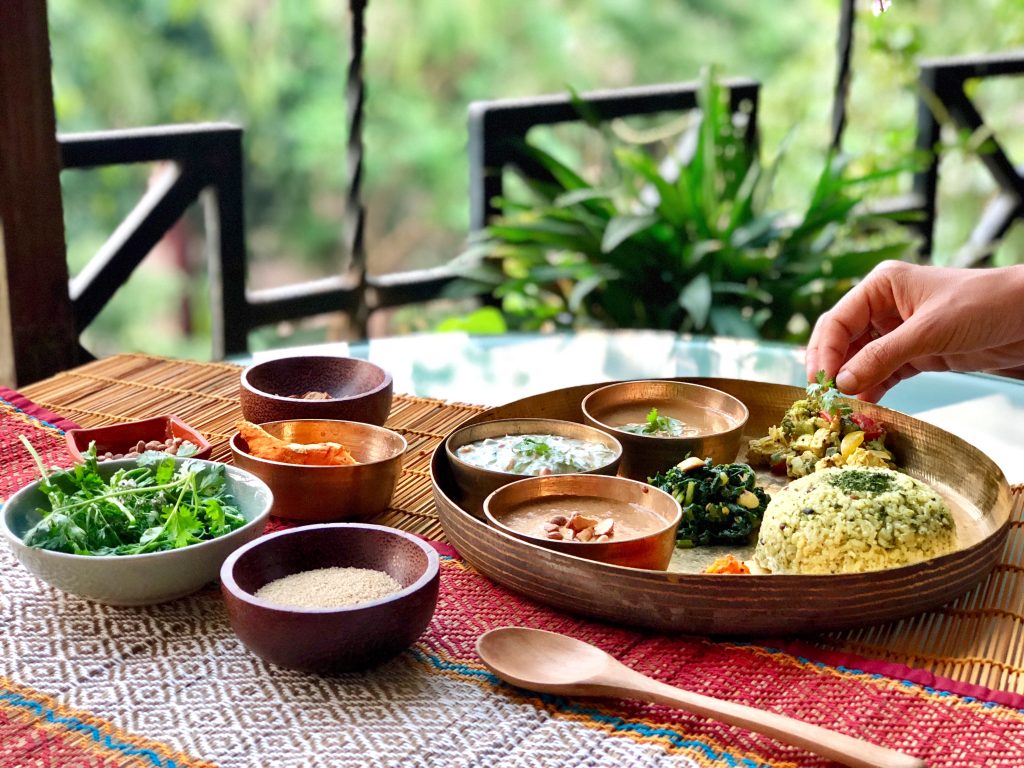
The state of the world today makes it easier to refuse a plastic straw than to look long and hard at our dietary choices and the animal abuse involved in the simple piece of chicken or cheese on our plate. But it’s the difficult choices that make us human – and let us experience the world with all our hearts.
Since I turned vegan four years ago and embraced a plant-based lifestyle, I’ve not only been lucky enough to try incredible local food around the world but also built some beautiful friendships through food everywhere from Iran to Japan to Mumbai.
Animal abuse aside, a diet derived from animals (including meat, milk, eggs and seafood) has a higher carbon footprint, consumes far more water and severely damages the ecosystem, as compared to a plant-based diet. In the current climate crisis, one of the biggest things we can do as individuals is say no to animal products.
Also read: How to Travel as a Vegan and Find Delicious Food Anywhere in the World
An Eco-Conscious Wellness Retreat in India for Yoga, Creative Food and Vitamin Sea
15. Be mindful of what you post on social media
What we post need to be driven not by ‘likes’ but by how responsible travel destinations will benefit or suffer from being shared on social media.
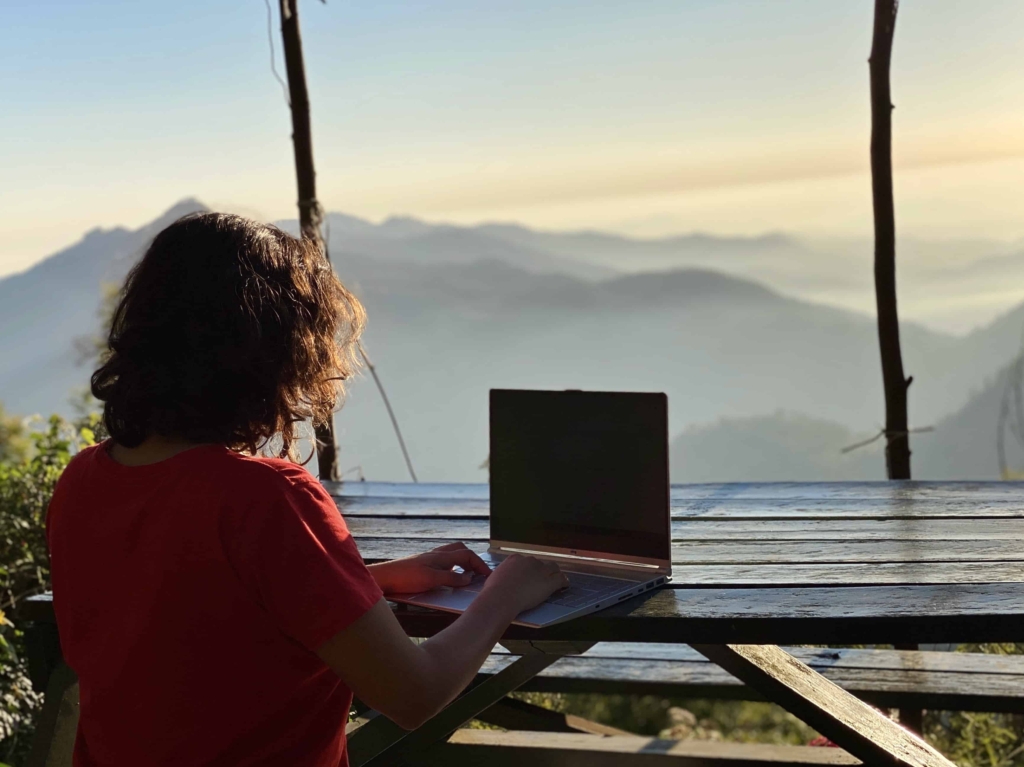
The explosion of travel content on Instagram coincides with overtourism around the world – and perhaps that’s no surprise.
It’s easy to scroll through dreamy pictures of Amsterdam, or Pulpit Rock in Norway, or the Maya Bay beach in Thailand, and decide to book our own trip there. But most of the time, these photos come with no context. They don’t talk about the crowds you must jostle in Central Amsterdam, the queue (and selfie deaths) on the iconic rock in Norway or the trash and negative impact on the ecology of ‘The Beach’ – so much that it had to be shut down!
All this puts more responsibility on us as travellers. We need to make better travel choices while we’re at the destination, but we also need to be aware of how we share our experiences on social media.
Should we geotag a fragile natural spot that hasn’t been discovered by the crowds? Should we shy away from sharing the truth of overtourism in our photos? Should we ignore the very definition of responsible travel and focus on click-bait content?
We only have one world to explore and f*ck up. If all this sounds like too much work, then perhaps it’s better to stay at home!

What responsible travel tips do you (aspire to) follow on your travels?
Join my responsible travel adventures and learnings on Instagram, Facebook and Twitter.
Order a copy of my bestselling book, The Shooting Star.
My responsible travel guides and recommendations
Responsible Travel Japan
The Ultimate Vegan (and Vegetarian) Survival Guide for Japan.
Responsible Travel Croatia
How Croatia Compelled Me to Rethink Travel Blogging
Responsible Travel Bhutan
Inspiring Women I Met in Bhutan – and What Happiness Means to Them
Responsible Travel Mexico
Crater Lakes, Cycling and Cactus Tacos: Quirky Ways to Experience Mexico
Responsible Travel Thailand
Where to Stay in Thailand: Unique Lodges, Boutique Hotels and B&Bs Beyond the Beaten Path
Responsible Travel Turkey
Dear Turkey: My Million Reasons to Visit You
Responsible Travel Georgia
If You’re Looking for the “Shire”, Come to Georgia!
Responsible Travel Romania
Romania, You Can Fool The World With Your Smiles, But Not With Your Heart
Responsible Travel Jordan
Meeting The Real Nomads: The Bedouins of Wadi Finan in Jordan
Responsible Travel Sri Lanka
Offbeat Sri Lanka Waiting to be Discovered
Recommended reading
What is Community Tourism Anyway?
Sustainable Cities: Sustainable Travel Tips for Every Kind of Traveller
Hi there! I’m Shivya, and I started this travel blog back in 2011, when travel wasn’t trendy, Instagram didn’t exist and AI wasn’t a thing (simpler times, I know!). I write about slow, meaningful and conscious travel – that is good for us, the places we visit, the people we meet along the way, and the planet at large. Settle down, grab a cup of tea, and read stories that remind you of the essence of travel. I’m so glad you found me!


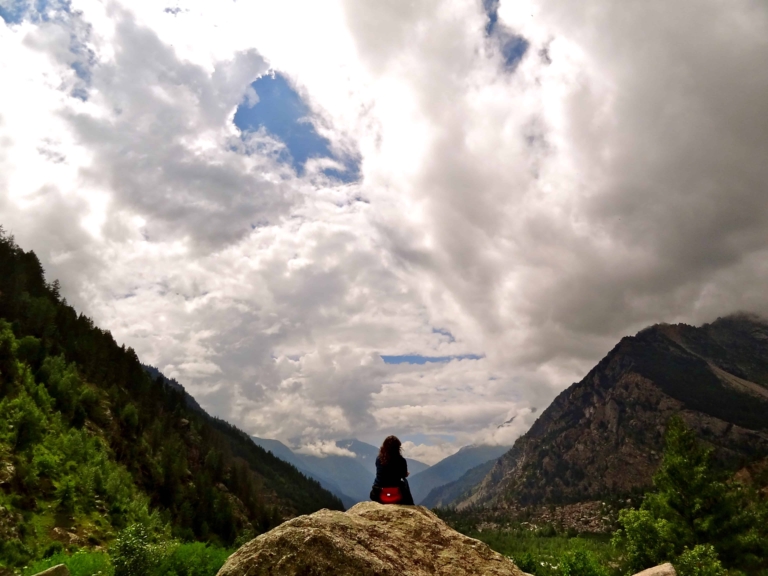
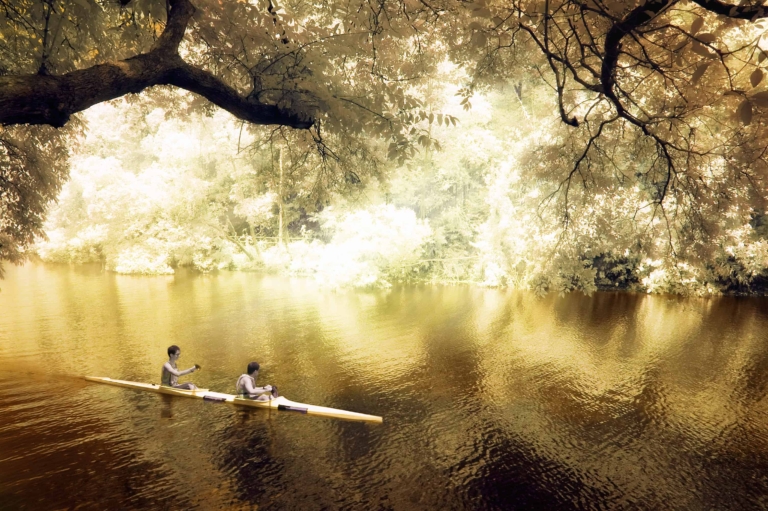
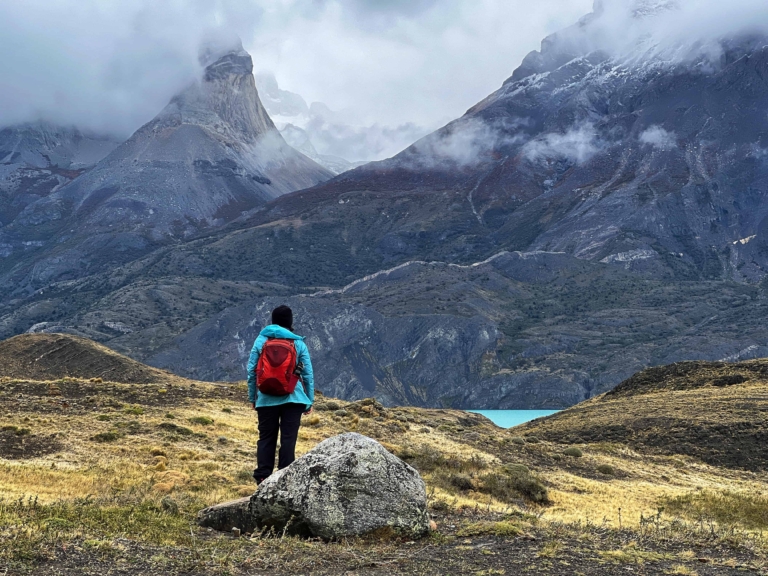
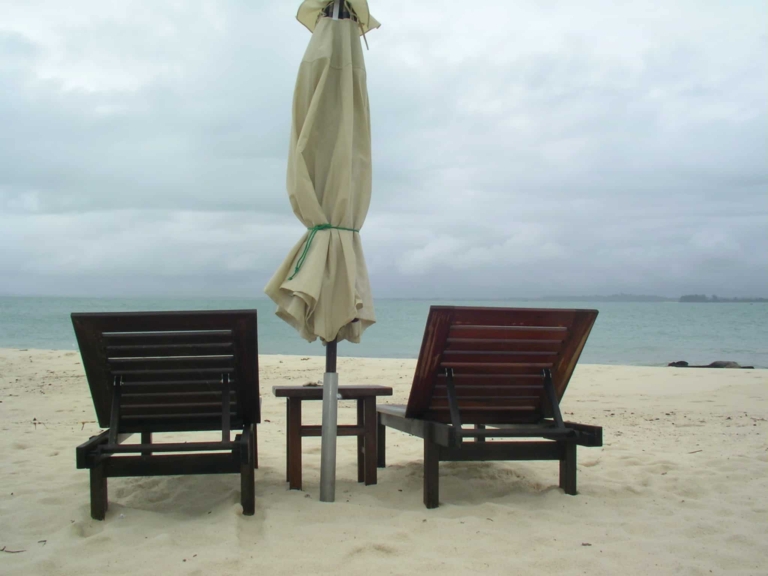
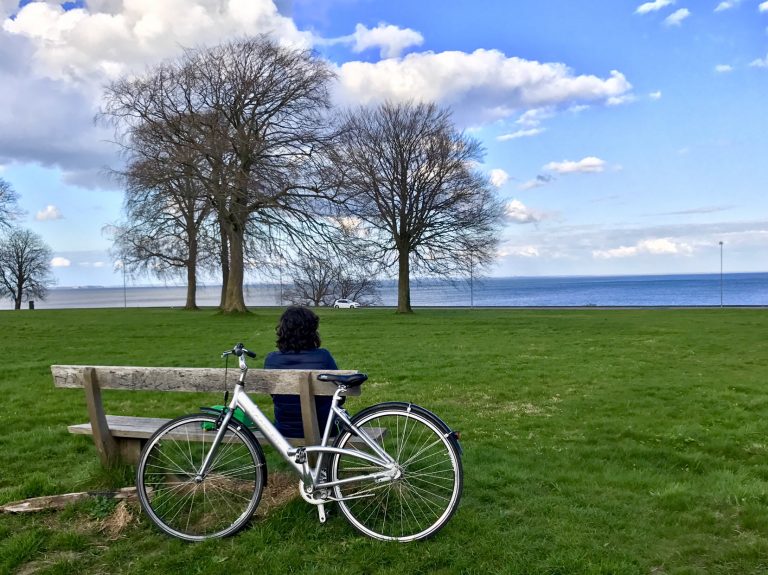
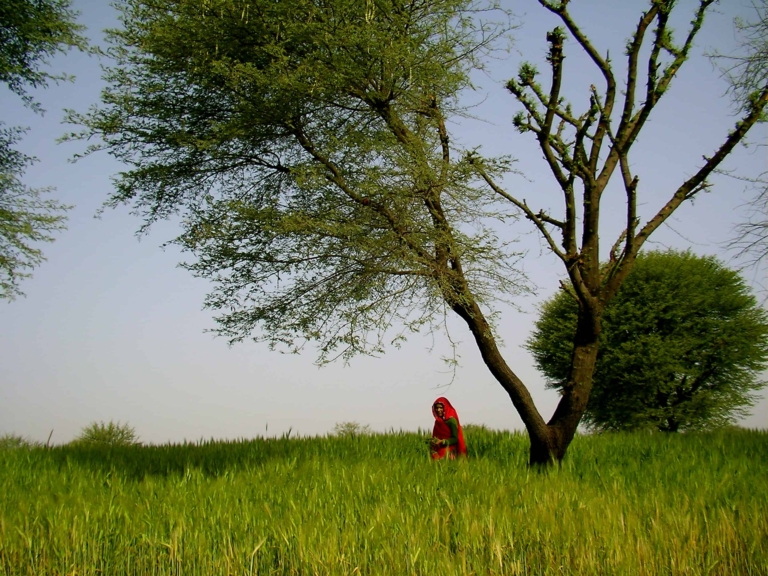
I love this post! I have to say that the only way to see an animal in captivity is when it’s a sanctuary for rehabilitation-we went to one in S.Africa that kept wild cats (civets etc) until they were healthy and released them back into the wild.
Those dollars go to feeding them and educating the public on the habitats and habits of the cats.
But I agree. We wouldn’t need those places if we didn’t destroy the habit they need to survive.
I do agree with you but unfortunately there’s a fair bit of greenwashing by so called sanctuaries too, although there are some real ones doing great work!
Hi, don’t stop in Cape Town. East London on our east coast is equally beautiful. We have a Baz Bus all the way from Cape Town to Durban & Joburg. Hop on in CT and hop off at East London. I’ll cook good food for you from my own organic garden.
Sounds lovely! The Baz Bus looks pretty expensive though; I’m considering taking the train to Joburg at some point; would you recommend that?
Food from your organic garden sounds delicious! Would love to catch up if I make it to East London 🙂 x
Lovely post shivya really inspiring me a lot and very interesting travel blog thanks
Thanks Adnan; hope it inspires better travel choices 🙂
Great and most important post, dear Shivya, I wish every traveler would be aware of this.
While writing this post, I was wishing we lived in a world where I didn’t have to write this 😉
I believe you.
Lot to learn from this post.. thanks Shivya😊
Thanks for reading Prachi; hope it’ll inspire more informed travel choices 🙂
Great tips, thanks for sharing! My fav is the eco friendly and off season.
Off season really does change how you experience a place, right?
Absolutely, way less people and wait times!
Animal sanctuaries are completely different to zoos (the ones in Namibia that is). We have Harnas Widlife Foundation that rehabilitate cheetah’s et al that had a bit of a disagreement with livestock farmers, we have Naankuse Wildlife Sanctuary that looks after roadkill that survived etc.
Second, and this is my opinion, social media platforms such as Instagram has aggravated the environmental degration of popular hotspots globally as those that crave attention and are socalled influencers flock to this highlights thereby increasing the human footprint.
In terms of air travel, to decrease our footprint we should simply stay home right? But that will deprive other indigent communities that survive on the occasional tourist dollar. Newer aircraft are efficient in terms of emissions etc and many long distance non-stop flights are now being pioneered by the leading airlines across the globe. Perhaps we should device a way of calculating our carbon footprint before undertaking any trip, in so doing we can (without throttling our conscience) decide to reduce the impact by not traveling at all, or using other avenues to lessen the impact.
Hence why I support your recommendation to go to the offbeat off the track tourist destinations or traveling out of season (off peak).
Nevertheless, brilliant write up as usual.
Thanks Dannii for your valuable thoughts! I do believe in supporting sanctuaries too, but also warn people of being aware of greenwashing (some actually cause more harm than good to get in travellers).
And absolutely agree with you on air travel. I hope the technology will evolve soon for aircrafts to have much lower emissions (like sustainable aviation fuel), but until then, instead of sitting at home, we can find better ways to travel. Closer to home, over land, choosing local etc.
Hope to make it to Namibia sometime!
Thank you writing this blog post! This is really one of the most complete guides to responsible travel I have seen, especially since you are not only considering the environmental impacts of travel which is often the case which such blogs. I think the points about taking photos and what to post on Instagram are very valuable as social media has such a big impact these days. I also read two interesting posts about what to consider when writing about other cultures and countries, you might find it interesting as well.
https://baniamor.com/2016/03/28/how-not-to-do-travel-writing-a-glossary-pt-1-dispatch-india-harris/
https://www.globonaut.eu/things-to-avoid-when-writing-a-travel-essay/
Thanks Shirley, glad you thought so! It’s hard to summarise everything I’ve learnt and crystallised over the years but this is a start. Will be writing more in-depth posts soon.
Thanks for sharing these posts; I’ll read them today!
Great post about responsible travel Shivya. So many people are obsessed with Instagram worthy destinations and don’t care about the history, the culture. Wish all travellers and tourists were aware of their human footprints. Hope this post will get viral ❤
Aww <3 I think responsible travel is far from going viral, but I do hope reading about the small choices we can make will make a different somewhere.
I can share the same sentiment about slow travel and being sustainable in regards to transportation options, etc. I travel at least 9 months of the year and I find it exhausting if I am always go go go. I used to do that back in the day when I was “vacationing”. But these days, travelling to me means taking my time, enjoying local culture and being full immersed in the city or wherever I am. And I would eat at local restaurants instead of getting take out because I want to enjoy a meal in a local environment and also not waste extra packaging for take out. Thank you for sharing all your tips! I really enjoyed your post!
I feel exactly the same way Queenie – taking my time instead of rushing through places! I sometimes just want to eat at home (and not cook) while watching netflix, so the reusable takeaway containers are super helpful 😉
This post inspires me a lot..
Glad to hear that Ankit 🙂
Hello,
The list is exhaustive I must say. If a traveler starts with politeness and respect for other’s culture and way of life I am sure most of other points could be easily followed. Great post as always. Thanks.
Thanks Bikram; that is a good starting point indeed!
Totally agree with all your point Shivya! So much to inspired by you. Good-luck for all the upcoming years! 🙂
These tips are really helpful to travel anywhere in the world. keep posting like this. thanks
I think we just need to be respectful of everyone and the environment when we travel. When we stay in Airbnb’s we treat the home like it is ours, keep quiet and clean up when we leave. Parents need to teach children to be respectful of local art, churches, sculptures and fountains. Great tips, especially the info on animal abuse.
These tips are really helpful for traveling anywhere in the world. Keep posting like this. Thank you for this article
I really enjoyed reading this thoughtful article Shivya. I generally slow travel but I particularly want to think more about land based travel from next year. One thing I’ve noticed is an increasing amount of volunteer beach clean ups on some of the islands in SE Asia I’ve visited this year. This makes me happy! Sam 🙂
An amazing piece of content. Just inspires me to write my next blog.